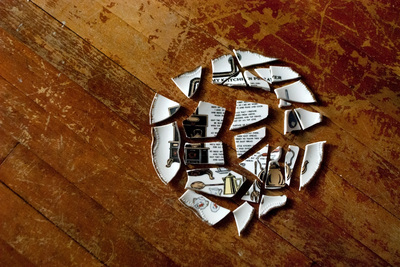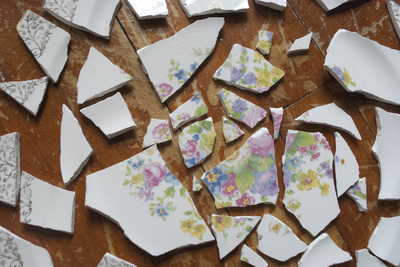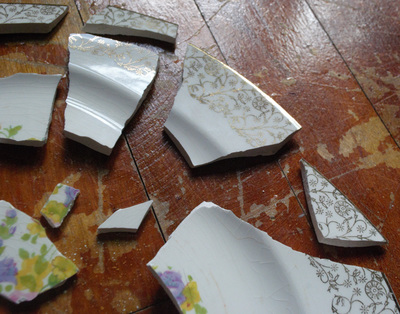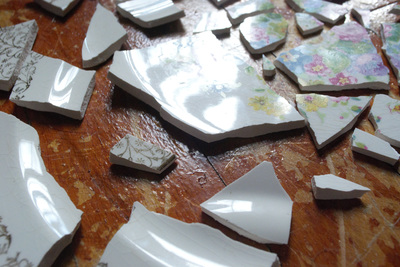Broken Lives
From family gatherings to the day to day meal preparation, the kitchen was always the most important room in my home growing up. Every home in my neighborhood had decorative plates, either on stands behind glass cabinet doors, or hanging on the walls. Some had painted scenes of fields and farm equipment, or forests and game animals. Some had bible verses, or poems about what it meant to be a home and a family. They were cliché, sappy, impersonal, yet each one told a story about the values of the people who lived there. They provided an insight into their values, their interests, and what was most central to their identity as a family. If I remember correctly, ours had a wild rose on it, or maybe a poem about the importance of family.
In my childhood household we ate as a family, we talked and bonded over those meals, prepared regardless of what else might be happening. No matter how busy, or tired we were, no matter if we were fighting over something, or on good terms, the family dinner was sacred.
When my father developed dementia, that changed. He would go days, refusing to eat, living on peanut butter sandwiches he’d make when my mother wasn’t looking, and coffee that he’d brewed from the dregs of the last pot poured back into the coffee maker. My mother was worried about him, and at times angry with him, and one day she smashed his plate of uneaten food against the wall over the trash can.
When I saw the broken plate, and understood what had happened, I knew my family wasn’t going to go back to the way we had been. That broken plate, as insignificant as it may seem, was a symbol, marking the end of an era in our family. From then on, meals became informal, the diner table overflowed with papers and boxes, and we ate in front of the TV, the evening news replacing the conversation I’d grown up with.
In this series, tentatively titled Broken Lives, I’m attempting to tap into that sense of loss, the decentralization of the family as we drift apart, both physically and emotionally. My family has scattered to the winds, each pursuing out own lives, and while we’re of course each happy in our own way, I still feel the distance as we move further apart each year. Broken Lives is meant to explore that loss, that gradual distancing and give it a physical representation.
In my childhood household we ate as a family, we talked and bonded over those meals, prepared regardless of what else might be happening. No matter how busy, or tired we were, no matter if we were fighting over something, or on good terms, the family dinner was sacred.
When my father developed dementia, that changed. He would go days, refusing to eat, living on peanut butter sandwiches he’d make when my mother wasn’t looking, and coffee that he’d brewed from the dregs of the last pot poured back into the coffee maker. My mother was worried about him, and at times angry with him, and one day she smashed his plate of uneaten food against the wall over the trash can.
When I saw the broken plate, and understood what had happened, I knew my family wasn’t going to go back to the way we had been. That broken plate, as insignificant as it may seem, was a symbol, marking the end of an era in our family. From then on, meals became informal, the diner table overflowed with papers and boxes, and we ate in front of the TV, the evening news replacing the conversation I’d grown up with.
In this series, tentatively titled Broken Lives, I’m attempting to tap into that sense of loss, the decentralization of the family as we drift apart, both physically and emotionally. My family has scattered to the winds, each pursuing out own lives, and while we’re of course each happy in our own way, I still feel the distance as we move further apart each year. Broken Lives is meant to explore that loss, that gradual distancing and give it a physical representation.




